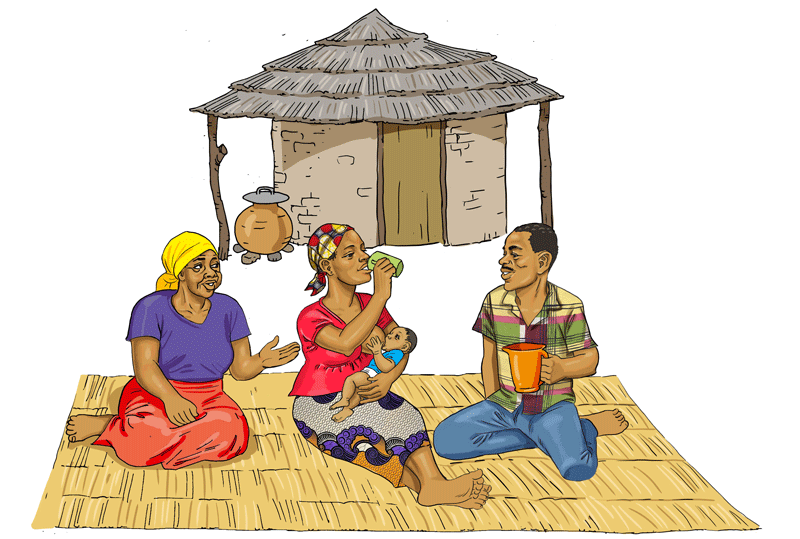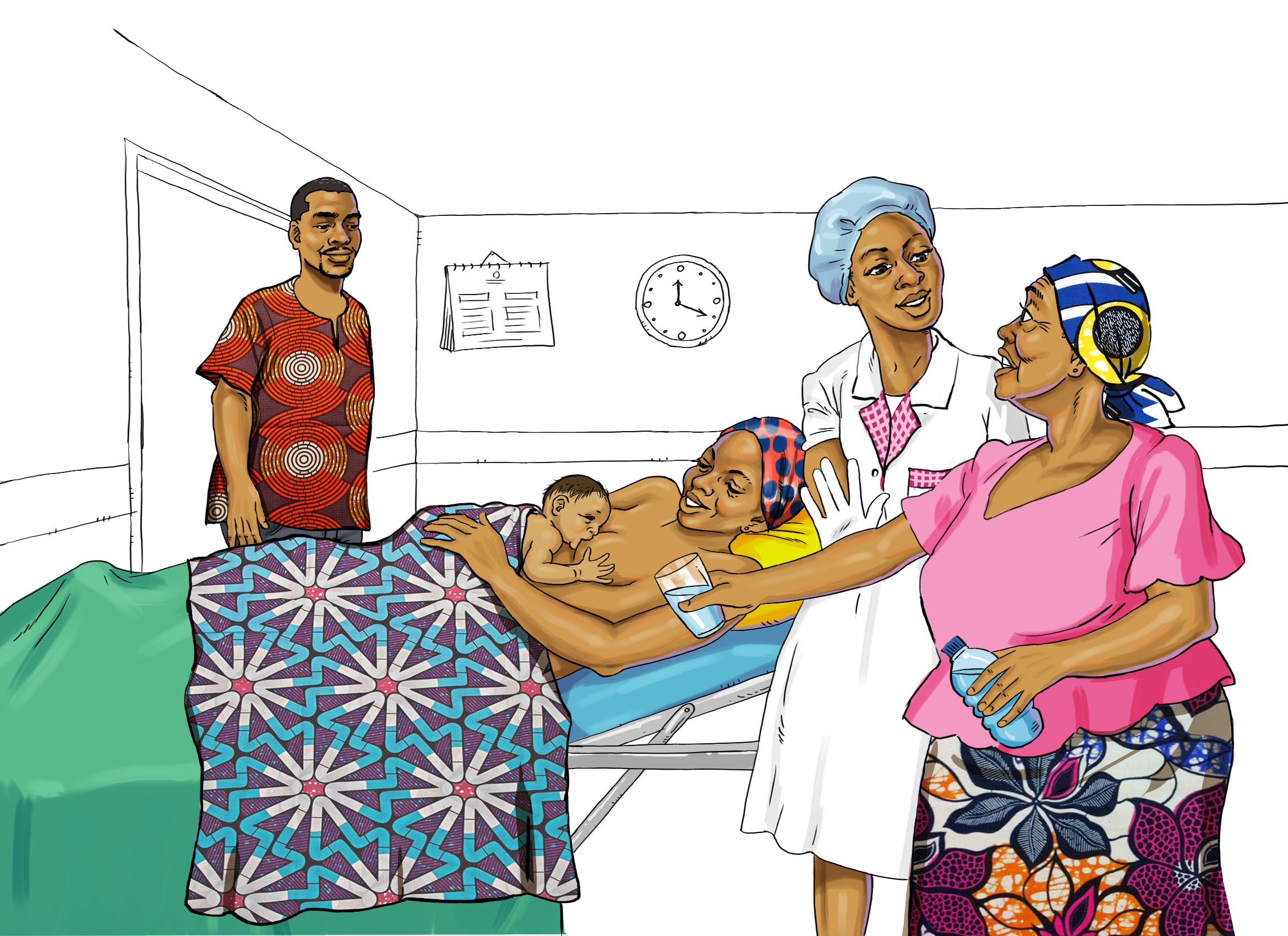A set of new counseling cards for health workers and scripts to be broadcast on community radio will help facilitate conversations about the importance of exclusive breastfeeding in communities across Burkina Faso, using insights from Alive & Thrive and UNICEF research about why caregivers give babies water during the first six months of life.

“Giving water to babies is pervasive in Burkina Faso,” said Maurice Zafimanjaka, country director of the Alive & Thrive program in Burkina. “The question is how to reduce this practice.”
One important intervention involves discussing the practice with various caregivers – mothers, grandmothers, fathers, and community health workers. Health workers and other stakeholders can use the counseling cards to incite conversations and actions aimed at changing behavior; community health workers will be trained to use them as well.
But first it is critical to understand what drives the practice.
According to Alive & Thrive research, in Burkina Faso, of the many factors underlying the practice, two stand out: First, as in many West African countries, it is customary to welcome guests by offering them water.
“A newborn baby is considered like a new guest when she arrives to the family home,” Zafimanjaka explained. “So, the customary practice of giving water to a guest is applied.”
A second factor is the intense heat of the day, which often surpasses 110 degrees Fahrenheit (43 degrees Celsius) during the hottest times of the year.
“People think – even health workers – with the heat of Burkina, can breastmilk really satisfy the thirst of the baby?” Zafimanjaka said.
Nathalie Likhite, Alive & Thrive’s SBC specialist for West Africa, also pointed out that the belief that “water is life.”
“There is a profound risk of denying giving water to any human being, babies included,” she noted.

To develop the counseling cards, Mozambican artist Zacarias Chemane drew illustrations showing various scenes with mothers breastfeeding. He did not start from scratch: The cards developed for Burkina Faso were adapted from cards developed by PCI Media and financed by UNICEF for the Stronger With Breastmilk Only regional initiative.
“I start working from the description the technicians send me and the briefs,” Chemane said. “With breastfeeding, it’s the experience that we all have: I’ve seen my mother, my sister even my wife breastfeed. It’s familiar to me.”
“I use empathy,” he added. “I try to imagine myself breastfeeding a child. That helped me for some poses, some expressions, especially the communication between mother and baby, it’s magical.”
The Alive & Thrive team in Burkina Faso adapted the guidance from the regional cards, ensuring it fit with the commonly used counselling approaches in Burkina Faso and adapted further based on Alive & Thrive’s “Stronger With Breastmilk Only” interpersonal communication (IPC) curriculum.
The cards were pre-tested in focus groups and individual interviews with mothers, fathers, grandmothers and health workers, to test their comprehension, appeal, relevance and effectiveness.
“We pre-tested the illustrations and IPC guidance with four main ethnolinguistic groups in Burkina: Dioula, Fulfulde, Moore and Gourmacema,” explained Nathalie Likhite, the regional SBC advisor. “Adaptations were recommended based on pre-test results and discussed with our partners at the Ministry of Health and UNICEF.”
“Our objective was to make sure the cards inspired the groups we are working with, and could engage them in thoughtful discussions around the benefits of giving breastmilk, the risks of giving babies water (other liquids or foods) and barriers and facilitators to giving babies breastmilk only at the time of birth and for the first six months of life,” Likhite said. “Illustrations such as these are a powerful way to trigger conversations around topics like exclusive breastfeeding and encourage people to share what their experiences are. When they are embedded in effective IPC, they help people reflect on their practices, and identify small steps they can take towards behavior change.”
Comments from the various groups who participated in pre-testing indicated the cards conveyed inspiring messages.
“When I see the images, I think of the joy of the family, of the psychomotor development of the child,” said a health worker in the Haut Bassins Region who participated in pre-testing. “The baby will be in good health and everyone wins.”
“When I saw the image – as a mother who has practiced exclusive breastfeeding – I thought if all women had done as I had, they will have babies in good health and a healthy family,” said a mother who participated in a women’s focus group.
Complemented by scripts broadcast on community radio in the four languages and a jingle emphasizing exclusive breastfeeding, the counselling cards will soon be in use in 13 health districts in 13 regions, Zafimanjaka said.
“So now we are working with national champions, media professionals, traditional and religious leaders to share these Stronger With Breastmilk Only messages,” Zafimanjaka said. “We want them to use their networks to address this social norm.”
